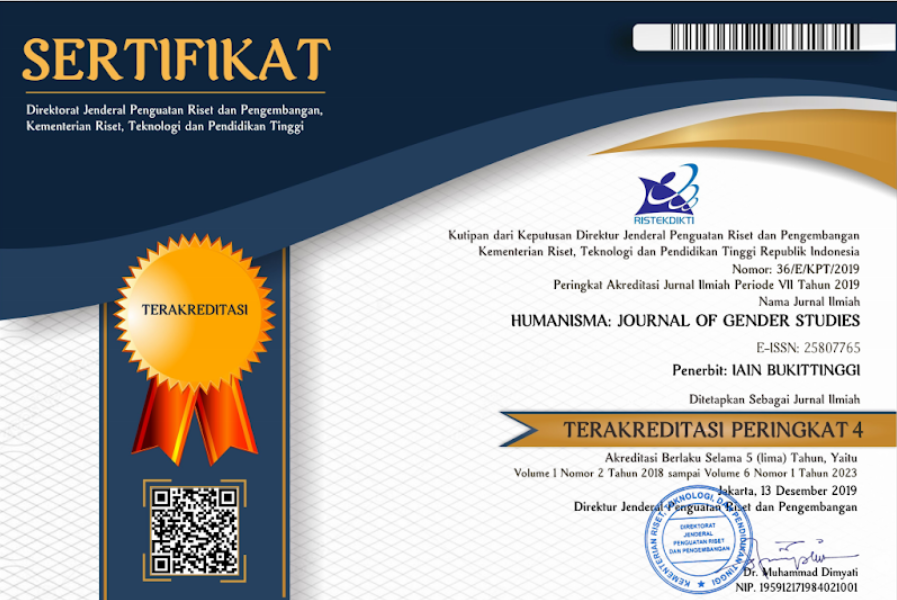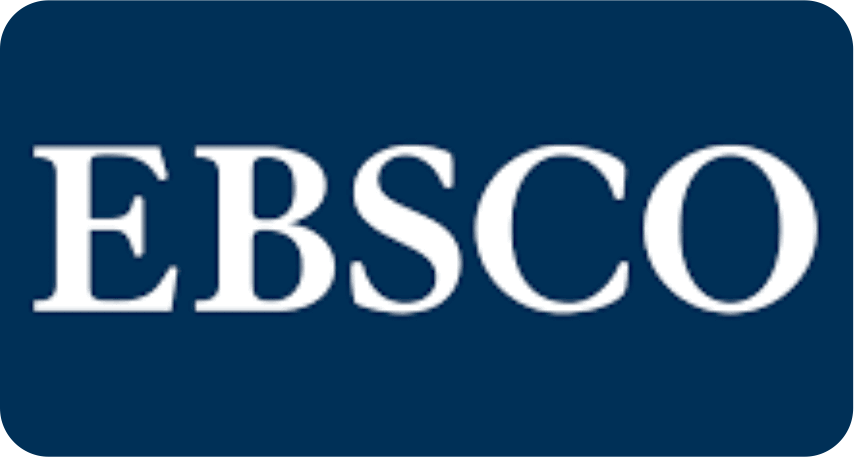GERAKAN EMANSIPASI RUHANA KUDDUS DALAM MEMPERJUANGKAN KESETARAAN PENDIDIKAN PEREMPUAN DI MINANGKABAU
DOI:
https://doi.org/10.30983/humanisme.v3i2.1097Abstract
At the beginning of the 19th century in Minangkabau, women just demanding to manage the household, they are not allowed to get the appropriate education and the high position of career. Because of this unlucky condition, some women in Minangkabau made a movement out of that oppression. One of the movement's doers is Ruhana Kuddus. In order to know the affection of Rohana Kuddus’s emancipation in her struggle for women’s education equality, these are the techniques of data collection and analysis is collecting the data, the main source is Scenting Melajoe newspaper, the second sources Are interviewing, book, journal, and all of the data about Ruhana Kuddus from the internet. Then criticizing of the sources, it can be internal and external critics. After that synthetic dan writing form (historiography). The results are incentive factors are religion value, traditional value, and social value. Obstructions factors are the illiteracies, the strict of traditional rules, the views on women, the empowerment of women and women’s skills.
References
Bangkit, Redaksi Jogja, (2010), 100 Great Women-Suara Perempuan yang Menginspirasi Dunia, Yogyakarta: Galanngpress.
Chaniago, Danil M., Perempuan Bergerak Surat Kabar Soenting Melajoe 1912-1921, Kafaah: Jurnal Ilmiah Kajian Gender, Vol. IV No 1 Tahun 2014.
Dahlia, Fitriyanti, (2018), Roehana Koeddoes Perintis Pers dan Pendidikan, Jakarta: PT Semesta Rakyat Merdeka.
Djaelani, M. Anwar, (2016), 50 Pendakwah Pengubah Sejarah, Yogyakarta: Pro-U Media.
Fitriyanti, (2005), Rohana Kuddus: Wartawan Pertama Perempuan Indonesia, Jakarta: Yayasan D‟Nanti.
Hadler, Jeffrey, (2010), Sengketa Tiada Putus, Jakarta: Freedom Institut.
Hakim, Rosniati, Pendidikan Sumatera Barat Berwawasan Gender: Lintas Sejarah Tahun 1890-1945, Kafaah: Journal of Gender Studies, Vol. 1 No. 2 Tahun 2011.
Hanani, Silfia, Rohana Kudus dan Pendidikan Perempuan, Marwah: Jurnal Perempuan, Agama dan Jender, Vol. 10 No. 1 Tahun 2011.
Hanani, Silfia, (2016), The Development and Modernization of Minangkabau People in Sumatera Barat in Indonesia and Its Impact on Local Identity, Switzerland: Springer.
Hanani, Silfia, Women’s Newspapers as Minangkabau Feminist Movement Against Marginalization in Indonesia, GJAT, Vol. 8 Edisi 2 Tahun 2018.
Mahnidar, Wawancara Pribadi, Minggu 19 November 2017.
Melajoe, Soenting, Sabtu, 7 Agustus 1912, Perhiasan Pakaian.
Melajoe, Soenting, Sabtu, 10 Agustus 1912, Seroean dari Bengkalis.
Mursidah, Gerakan Organisasi Perempuan Indonesia dalam Bingkai Sejarah, Muwazah, Vol. 4 No. 1 Tahun 2012.
Nastiti, Titi Surti, (2009), Kedudukan dan Peranan Perempuan dalam Masyarakat Jawa Kuna (Abad VII-XV Masehi), Depok: Universitas Indonesia.
PaEni, Mukhlis, (2009). Sejarah Kebudayaan Indonesia: Sistem Sosial, Jakarta: PT RajaGrafindo Persada.
Sari, Susi Ratna, Dari Kerajinan Amai Setia hingga Soenting Melayoe Strategi Rohana Kuddus dalam Melawan Ketertindasan Perempuan di Minangkabau, Kafaah: Jurnal Ilmiah Kajian Gender, Vol. VI No. 2 Tahun 2016.
Triyanto, Regulasi Perlindungan Hak Asasi Manusia Tingkat Internasional, Jurnal PPKn , Vol. 1 No. 1 tahun 2009.
Zed, Mestika, dan Hasril Chaniago, (2018), Riwayat Hidup dan Perjuangan Ruhana Kuddus Tokoh Perempuan yang Mendahului Zaman, Padang: UNP Press.
Downloads
Submitted
Accepted
Published
Issue
Section
License
Authors who publish with this journal agree to the following terms:
- Authors retain copyright and grant the journal right of first publication with the work simultaneously licensed under a Creative Commons Attribution-ShareAlike 4.0. that allows others to share the work with an acknowledgment of the work's authorship and initial publication in this journal.
- Authors are able to enter into separate, additional contractual arrangements for the non-exclusive distribution of the journal's published version of the work (e.g., post it to an institutional repository or publish it in a book), with an acknowledgment of its initial publication in this journal.
- Authors are permitted and encouraged to post their work online (e.g., in institutional repositories or on their website) prior to and during the submission process, as it can lead to productive exchanges, as well as earlier and greater citation of published work (See The Effect of Open Access).



















